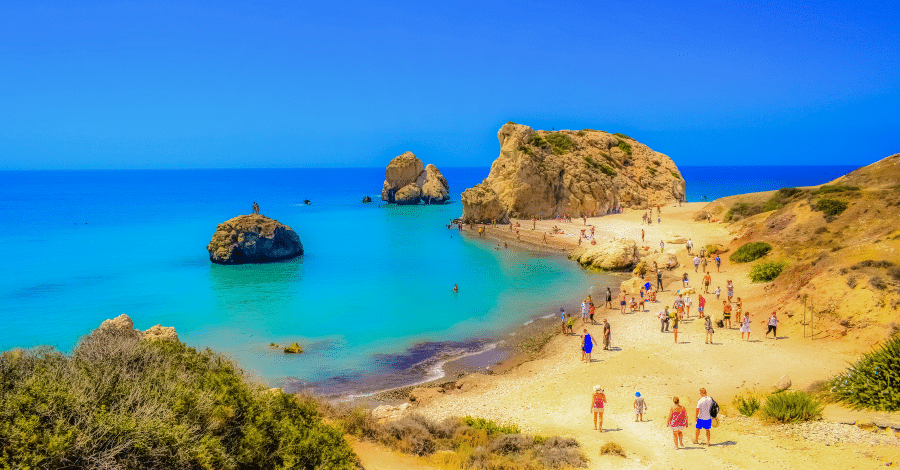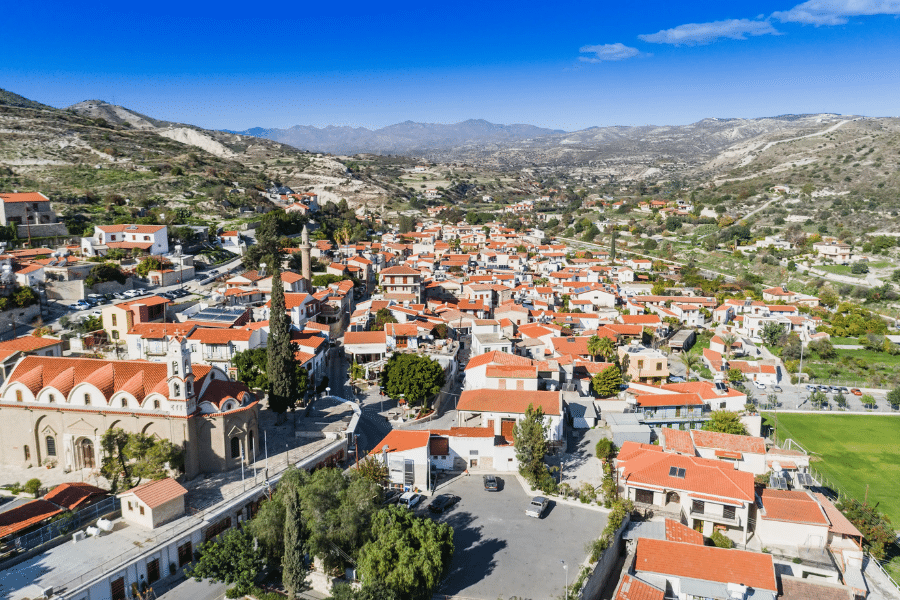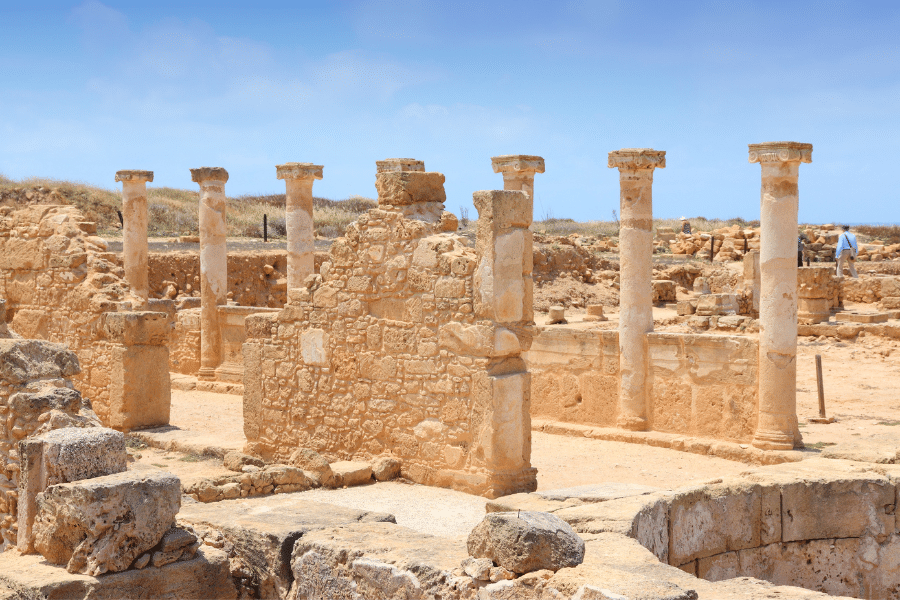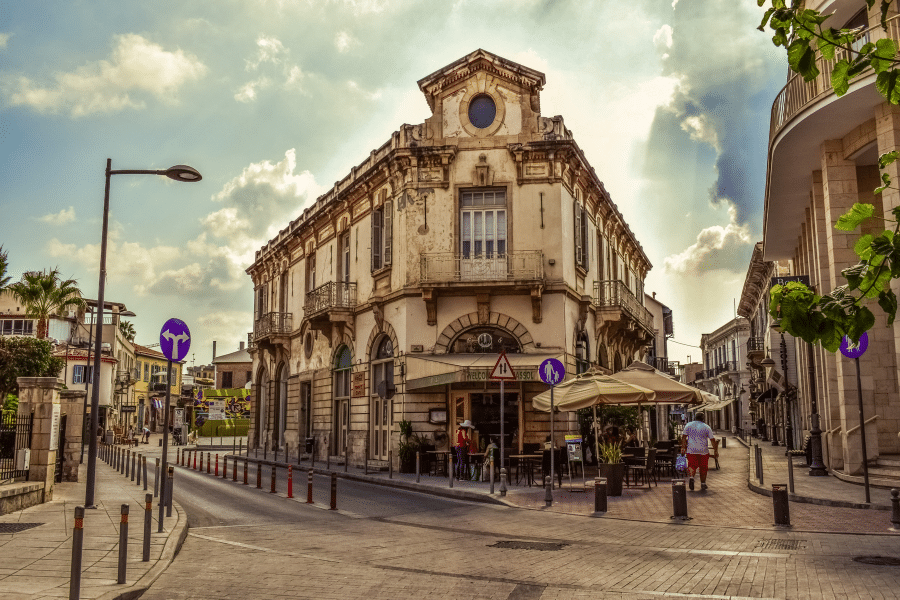Cyprus has been a popular vacation destination for many years, and living in Cyprus is appealing to retirees of various nationalities, including the British and Americans, as well as an increasing number of young families. Just like any other place, living on this Mediterranean island comes with some pluses and minuses.
Cyprus is a divided island with a divided capital. We are focusing on living in the Greek Cypriot Republic of Cyprus, an amazing country worth considering to move to and start a new life abroad.
Let’s start with the conclusion: none of the cons of living in Cyprus are serious enough to deter you from living there.We do think, however, that it is wise to learn about the pros and cons of living in Cyprus before making the move.
The pros of living in Cyprus
- Cyprus has great potential with a relatively stable economy and good GDP growth, especially in the service sector linked to tourism. It is also politically stable, with ongoing talks between the Greek Cypriots and Turkish Cypriots (who reside in the northern part of the island) to address ‘the Cyprus Problem.’
- Cyprus enjoys wonderful weather so you can spend at least nine months of the year at the beach. It experiences around 320 sunny days per year, with average summer temperatures in Limassol on its south coast ranging from 25-30ºC (75-85ºF). Nicosia, its capital located inland, sees higher average summer temperatures, averaging 37-40ºC (90-105ºF).
- The hottest part of the day is between 11:00 AM and 4:00 PM. Many smaller shops remain closed until 4:00 PM in the summer so that people can avoid the sun and enjoy a leisurely siesta. Shops stay open until 8:00 PM or even later in the evening.
- Cypriots are warm, welcoming, and generous, with a special fondness for babies and small children. Children often receive small sweets as gifts in shops.
- English is widely spoken in the major cities in Cyprus, with 73% of Cypriots speaking good English. Learning some Greek is helpful, as many older Cypriots and those in rural communities don’t speak much English.
- The traditional Cypriot diet, emphasizing vegetables, pulses, and fruit with minimal meat, is considered one of the world’s healthiest. Cypriots follow a seasonal diet rich in fresh produce, as freezing of food is limited.
- Cyprus offers a wealth of attractions, including UNESCO archaeological sites, unspoiled fine-sand beaches, beautiful churches, monasteries, and numerous church festivals to engage in while living in Cyprus.
- Cyprus boasts a low crime rate and is generally considered a safe country.
- The cost of living, including accommodation and food, is lower in Cyprus. Opting for accommodations slightly outside town centers can lead to cheaper rents. Solar panels for hot water contribute to lower utility bills. Local, seasonal foods help keep food costs reasonable.
- Cyprus has a favorable tax system designed to attract international businesses and investors. The tax threshold for individuals living in Cyprus applies to incomes exceeding €19,500 (approximately $21,000) per year.
- For swift deliveries between major towns, several express delivery services with reasonable charges are available. A letter can reach the company’s Nicosia office just two hours after being sent from Paphos.
- Repair services are readily accessible in Cyprus, with skilled craftsmen available for various needs. Even if a spare part for a classic car is unavailable, someone can craft a perfect replacement. Similarly, jewelry and shoe repairs are easily handled. Custom-made suits or dresses can be tailored in just a few days.
- Due to its lack of heavy industries, Cyprus maintains low pollution levels. The quality of seawater is also high. Living in Cyprus becomes particularly special when gazing at the night sky, offering a clear view of stars and planets.
The cons of living in Cyprus
- Cypriot bureaucracy can be time-consuming and lengthy. A common response regarding proceeding is ‘avrio’ – tomorrow, often accompanied by ‘siga siga’ – slowly…
- Cypriots are generally not punctual for appointments – adding ten minutes can help adjust to this cultural norm.
- Securing a job can be challenging for non-EU country nationals, with relatively low salaries. There is no national minimum wage. Many jobs are linked to the seasonal tourism industry and may not always provide work permits.
- Learning Greek, one of the world’s most difficult languages, can be essential, particularly if village life is your preference while living in Cyprus. Knowing some Greek enhances the village living experience.
- Public transportation is limited in Cyprus due to the absence of a rail network, and bus services in rural areas are infrequent. Taxis, however, are relatively affordable.
- Unless residing in a town center, a car is often necessary. Driving standards in Cyprus can be inconsistent, especially with uphill overtaking attempts.
- For those seeking vibrant nightlife, main towns offer numerous options; however, it’s worth noting that activities typically commence quite late, often around 1:00 AM.
- Buying a house in Cyprus can present challenges. Assessing property quality and ensuring available title deeds become crucial before completing a purchase.
When weighing these factors, the island’s beauty, splendid climate, excellent cuisine, and local wines undoubtedly tip the scales in favor of considering a move to Cyprus – living in Cyprus is a remarkable decision.




